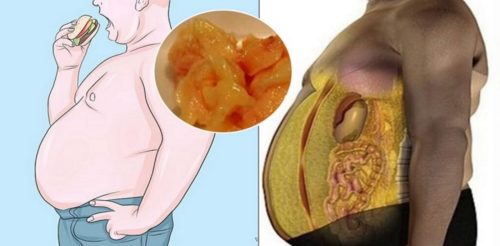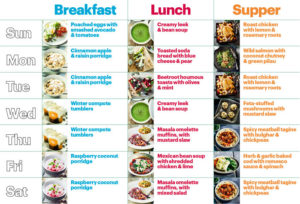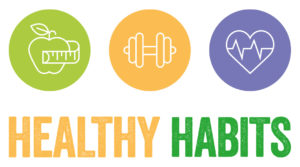Usually, when one speaks of having the goal to burn the fat around their stomach, one basically refers to, is two separate kinds of fat deposits, the first one is visceral fat also known as the active fat and the fat under your skin or the subcutaneous fat. The latter is actually the one you can “see” when you pinch your arms, belly, thighs or any “loose” and “jiggly” part of your body. Visceral fat is, however, a lot harder to notice since it surrounds the organs in your midsection, like the pancreas, liver and it also surrounds your intestines.
Why is it not good to have a big visceral fat body percentage?
Having a big visceral fat percentage in your body can cause a serious interference with the proper functioning of the liver as well as inhibit proper hormonal messaging between the body’s vital organs. This can ultimately cause resistance to insulin which can set the road to developing diabetes, high blood pressure, increase cholesterol and increase the risk of developing heart disease. Large deposits of visceral fat have been related to various types of cancer, like colorectal and breast cancer, stroke, dementia and Alzheimer’s disease.
What’s more a larger midsection in combination with an increased blood pressure, high triglyceride levels in your blood, low levels of good cholesterol and increasing blood sugar levels are symptoms of the so-called “Syndrome X”, which appears when the stores of visceral fat are high. However, all is not lost. There is a way to stop the deposits of this type of fat and reverse it altogether. Changes in your lifestyle which include proper diet and increased physical activity will increase the body’s usage of the visceral fat deposits and decrease the risk for heart disease development.
How to diagnose and fix the problem?
The best way to find out if you have too much visceral fat is to measure your midsection. And the most precise way to find out if you are at a risk is to have a CT scan or MRI scan. These procedures are very expensive and not necessary from a medical standpoint. Nonetheless, having a waist measuring more than 30 inches for women and 40 inches for men is a clear indicator that there is an excess of stomach fat, even though you might have a healthy weight and seem to be in an overall good health.
1. You should follow a properly customized diet plan according to your needs
A good strategy is to fill up on fresh veggies and fruits which are full of nutrients and fiber which will ease the digestion. You need to consult with a professional nutritionist who will help you design proper diet plan as per your needs with the primary aim of health improvement and weight loss. A generally accepted recommendation among nutritionists is to limit the consuming of fat to 20-30 % of the total daily calories, limit the saturated fats found in palm oil, and processed food to 7% and completely avoid trans fats which are the most harmful.
The diet plan is supposed to be comprised of fresh veggies and fruits, lean protein and slow-digesting carbs found in lentils, beans, and grains, filling you up with fiber and maintaining high energy levels. You should also try using olive, peanut, canola, sesame or safflower oils because they are a good source of monounsaturated fats, also known as the good fats, but as with anything else, use them in moderation. You shouldn’t neglect vegetable oils, including sunflower, coconut, avocado and grape seed oils.
2. Increase training volume as well as intensity
Training with moderate intensity 4-5 days a week is one of the easiest ways to maintain healthy levels of physical activity. You should train for at least half an hour each day, which will burn off excess calories you’ve consumed. A gradual loss of weight in the range of 5-10% of the total body mass will also gradually decrease the deposits of visceral fat. In order to do that, you need to expend more calories than you have consumed, otherwise known as being in a negative caloric balance.
More accurately, if you want to lose one pound per week, you must reduce your daily calories by 500 a day. This is achievable by exercising. Types of physical activity you could tray include simple walking, circuit training, riding a bike or anything that will speed up your heart rate and will keep you moving for a full hour. It wouldn’t hurt if you incorporated a HIIT routine. One study has found that HIIT type of training helped reduce total belly fat, both subcutaneous and visceral.
3. Keep yourself accountable and motivated
Being supported by a like-minded community is a great way to be consistent with your diet plan and achieve your weight loss goals much faster. Healthy weight loss is a slow process and one shouldn’t expect to lose the excess fat overnight since it took a long period of time to gain that weight in the first place. As we previously said, a gradual and slow weight loss will decrease the visceral fat deposits in a more efficient manner and eliminate any other medical complications that might arise.
You should always keep that in mind since it will help you stick to your training and diet plan. Nowadays, there are lots of smartphone applications that allow you to easily track your weight loss progress, MyFitnessPal being one of the most popular. Reaching out to people that support your fitness journey and goals and asking for encouragement in difficult times is always helpful. Research has shown that those who have people that they could be accountable to will be more prone to sticking with the fitness plan and achieve their goals.
4. Incorporate healthy habits in your lifestyle
Practicing meditation is an excellent way to decrease stress levels, or simply breathing deeply for a few minutes. If you are looking for ways to improve your health, it goes without saying that you should give up smoking if you already are a smoker, reduce alcohol intake, take up a physical activity and stop eating processed products that are high in unhealthy fats.
Always opting for healthier choices will increase your overall life quality and will quickly show itself on the scale. Don’t forget to get enough sleep and always give yourself a time to relax. Scientists have discovered that cortisol, the stress hormone, increases the depositing of visceral fat. That’s why it’s always a good option to meditate for 20 minutes, take up yoga, take a bath or go for a walk.







Post your comment